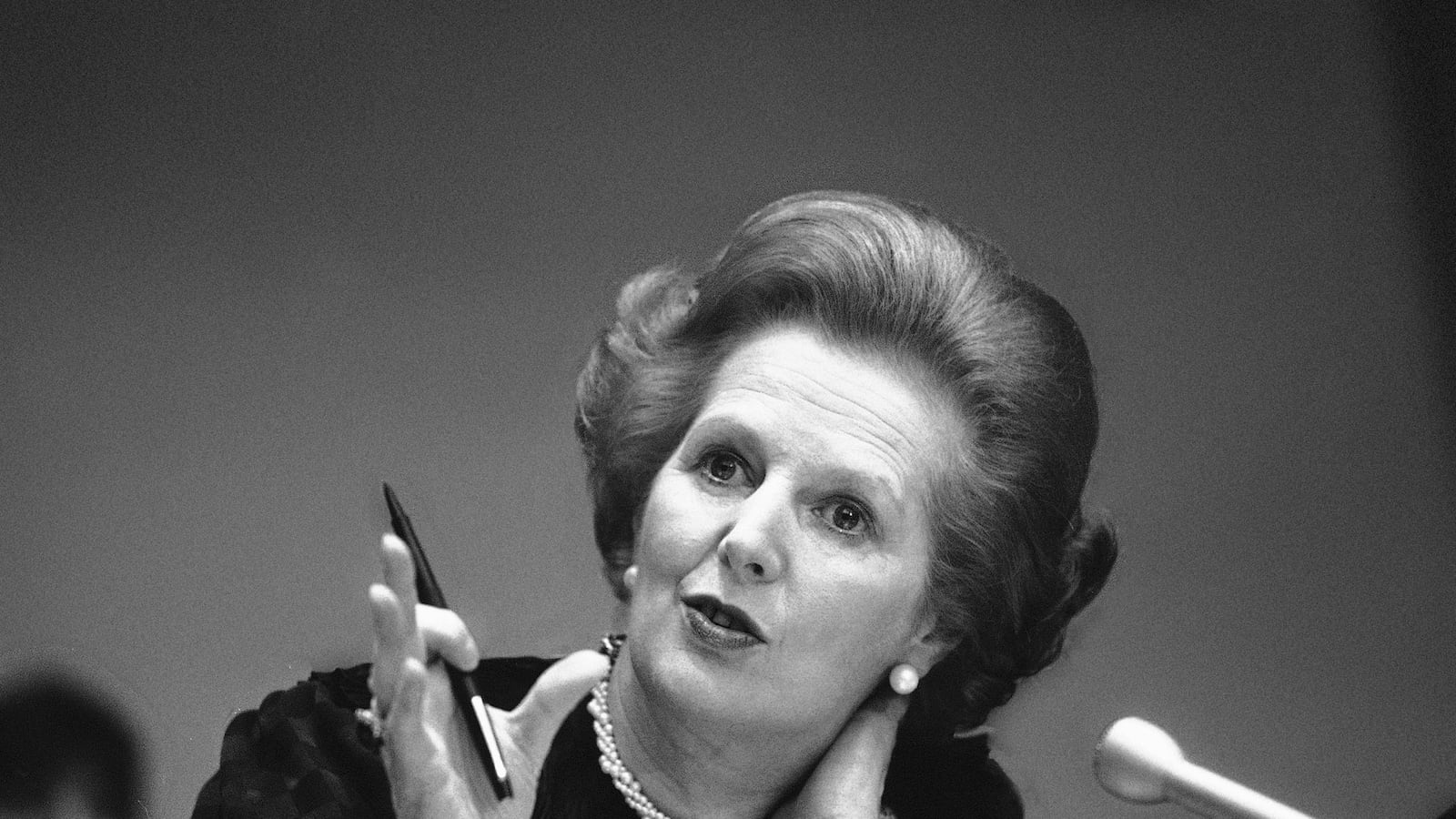Of the four most significant politicians in Britain in the last 200 years, only one—Winston Churchill—was a man. The others—Queen Victoria, Queen Elizabeth, and Margaret Thatcher—weren't (or in the case of Elizabeth, aren't) any such thing.

Margaret Thatcher was a woman: a confounding, irrepressible, flirtatious, stubborn, certitudinous, unabashedly conservative woman. She was also a patriot, a Briton, and a wife, excelling at the arts that each of those categories demand of a person.
Of course, it has always grated with feminists and the left that Maggie—she was always just "Maggie," or, if you were a trade union opponent, "Maggie, Maggie, Maggie, Out, Out, Out"—was, in her pomp, the most powerful woman the world has ever seen. The woman who played an omnipotent American president like her personal violin. The woman who sent her battleships to war, and who, when that war was won, called on her people to "rejoice" in a way that seemed indistinguishable from gloating. The woman who took no nonsense from a cabinet of quivering, jelly-kneed men, some of whom loved her, some of whom loathed her. The woman who grasped Britain's unions by the neck and hurled them repeatedly against the wall, like some floppy rag doll. The woman who disliked Europe with an abiding passion, tapping shamelessly into the insular core of her island people. The woman who rose from the smallness of a grocer's shop to the pinnacle of 10 Downing Street, remaking almost every aspect of herself along the way: her voice, her diction, her hair, her dress, her posture, everything but her politics, which remained, from start to end, adamantine in its conservatism, in its fidelity to a version of self-reliance, to small government, to home ownership, to a Britishness of culture that brooked no nonsense from funny foreign Johnnies.
Maggie Thatcher transformed Britain, and transformed British politics. When she came to power in 1978, Britain was a dreary, dreary place: dingy, funereal, abashed, scruffy, feckless. In a few years, she wrought a vehement revolution, one that history will judge to be as profound as any in modern Europe, and certainly as profound as the British revolution that she worked so furiously to undo, to wit, the revolution of the Welfare State that had been pulled off at the end of the Second World War.
Proof of a person's greatness lies often in the passion with which that person is opposed. And Maggie's opponents, a class that was never short of components, scorned her with an unbridled energy. It was an energy, however, that she fed off, that fueled her, that put the Iron in the Lady. By the end of her life, that energy, that zest, had drained away. She cut a sorry figure, a figure that she herself would have hated—had she been aware of her own condition.
Mercifully, she was not. And for that, as for everything else she did for Britain, I give thanks.






